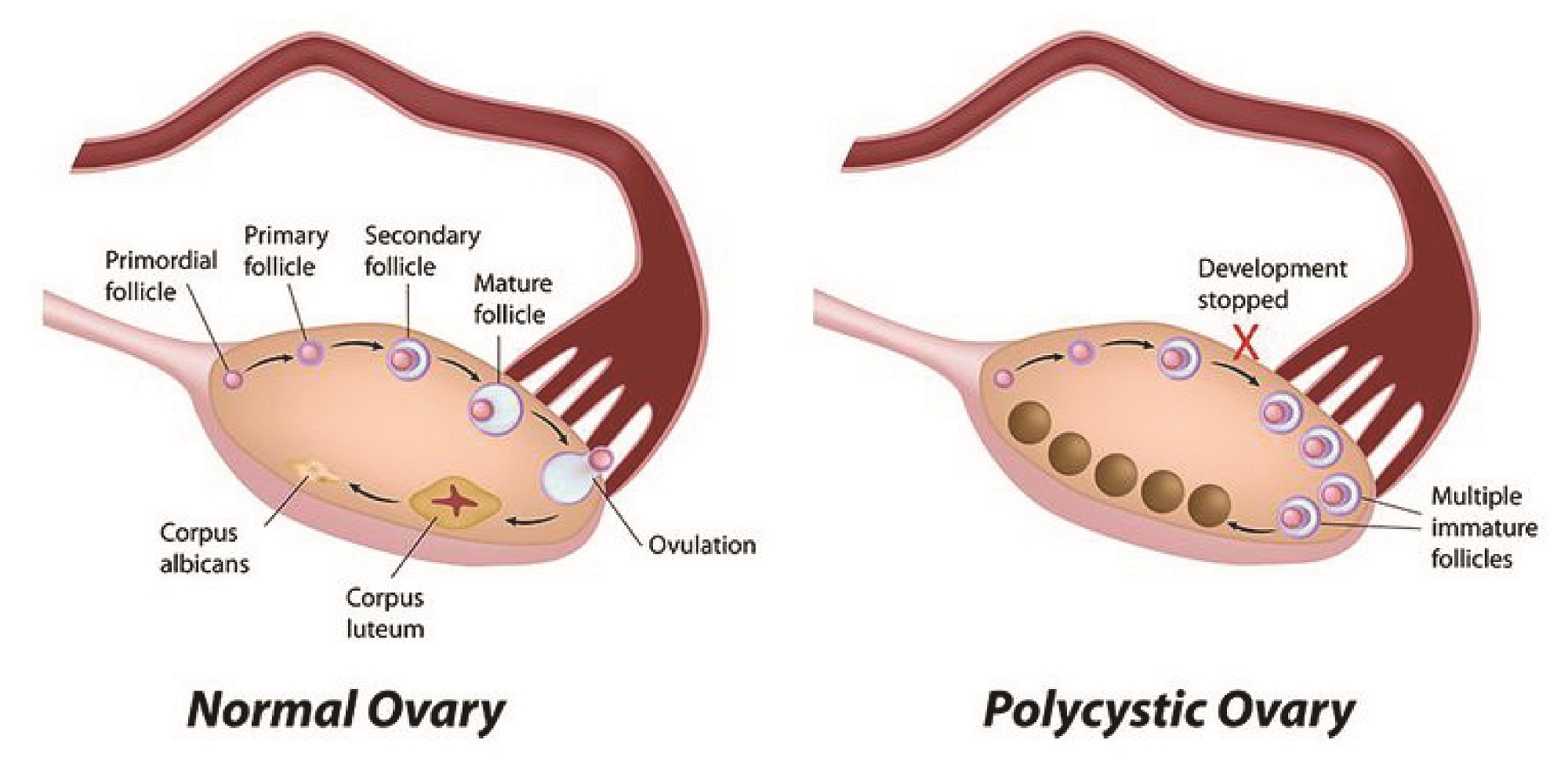
14:33 8th June 2018 | Causes of Female Infertility
What are the Causes and Complications of PCOS?
PCOS is an acronym for polycystic ovary syndrome which is one of the most common gynaecological endocrine disorders in women between the ages of 15 and 49. This hormonal condition can lead to several complications, including infertility. It is therefore important to be aware of the signs so that diagnosis can be made and symptoms can be managed.
Symptoms of PCOS
Not everyone with PCOS experiences the same symptoms, which can start appearing during puberty or a bit later. In obese women, symptoms can be more severe than in someone with a healthier weight.
One of the major warning signs is period irregularities which can include shorter cycles, heavier bleeds or infrequent cycles. Hair loss or an unusual amount of hair on the face and certain body parts may be a sign of PCOS. This is caused by higher than normal levels of androgen, a male hormone that is also present in women. Sometimes male-pattern baldness and acute acne can develop as well. Hormonal changes can also cause headaches, weight problems and the inability to conceive.
Causes of PCOS
Unfortunately the exact cause of PCOS is unknown, but excess insulin (which regulates blood sugar), low-grade inflammation, and genes could play a part. Raised levels of androgen, which is also a symptom, could be to blame.
Complications of PCOS
Since PCOS is a hormonal condition, it can affect many parts of the body and even the mind. In fact anxiety, depression and eating disorders are all possible complications. Physical conditions associated with PCOS include diabetes (prediabetes, type 2 and gestational), reproductive problems, obesity, endometrial cancer, high blood pressure, high blood sugar and abnormal cholesterol that greatly increase risk of cardiovascular disease.
Please consult a healthcare professional if you are experiencing any symptoms. The sooner diagnosis is made, the sooner treatment can start, which could reduce the risk of serious health complications in the future.
DON’T MISS IMPORTANT AND RELEVANT HEALTH-RELATED UPDATES
Sign up to receive our monthly mailers.
If you have any questions, or if you want to book an appointment, please don’t hesitate to get in touch:
Email: enquiries@thebridgeclinic.com
Call: 01 631 0092 / +234 (0)1 631 0092.
Visit: 66 Oduduwa Way, Ikeja GRA
Search by condition, treatment or keyword and conveniently browse our informative articles
Book an appointment online or search for a clinic close to you.
Book an Appointment